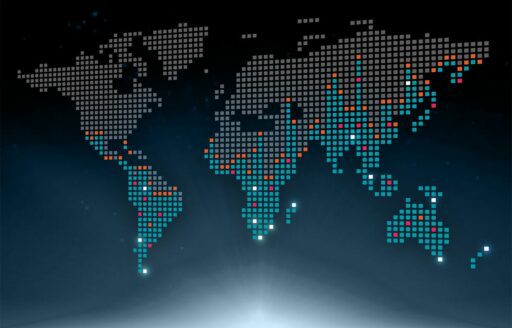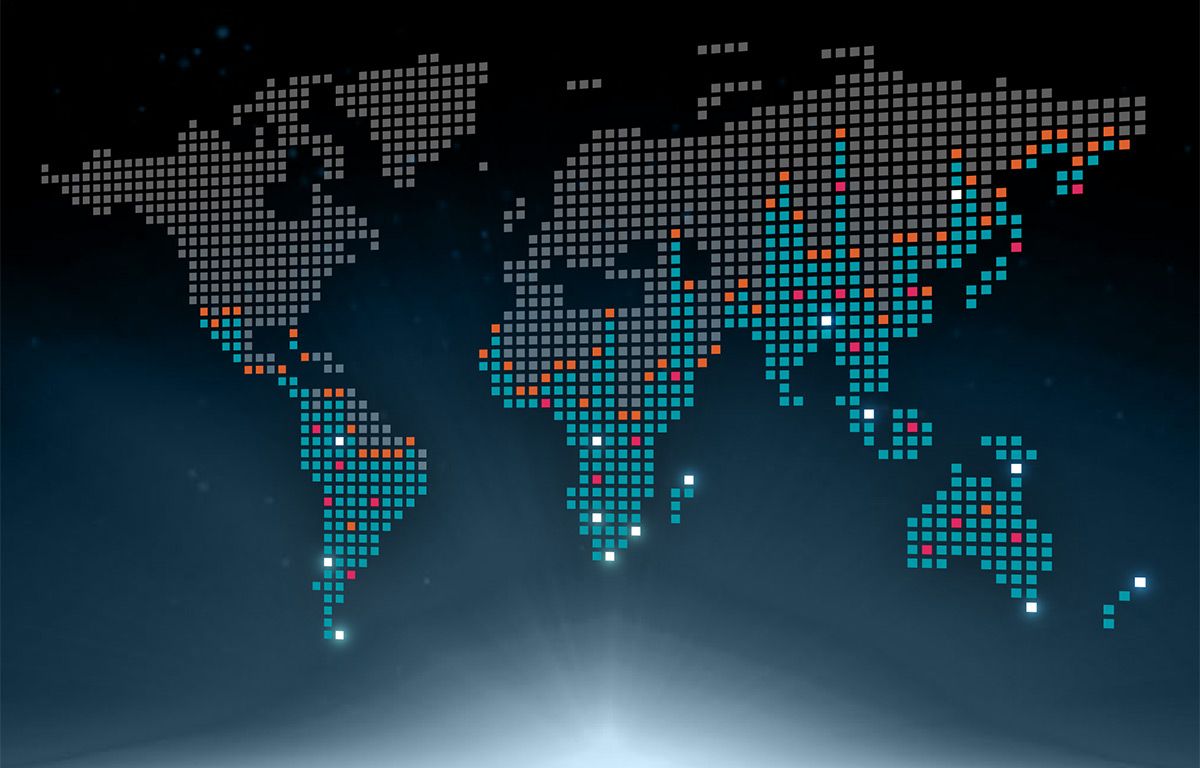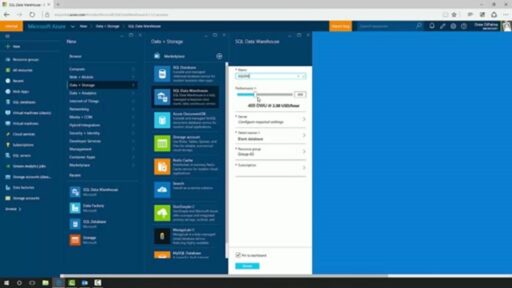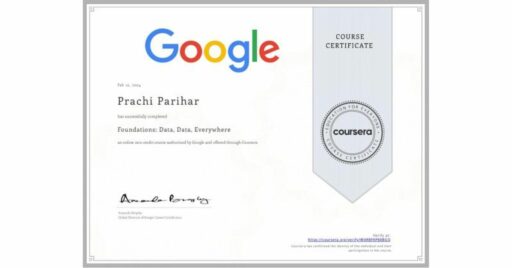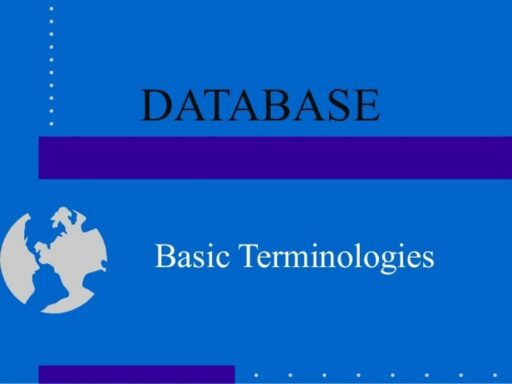Table of Contents
New York City’s Open Data platform is a treasure trove of information that offers a window into the inner workings of the city’s various departments and services. By making data freely available, NYC Open Data acts as a powerful tool for promoting transparency, fostering innovation, and empowering residents. This article explores the multifaceted impact of open data on civic engagement, innovation, social justice, education, and the future of data-driven initiatives in the Big Apple.
Key Takeaways
- NYC Open Data enhances civic engagement by promoting government accountability and empowering citizens with data for public participation.
- Public data resources serve as a springboard for innovation, aiding startups, academic research, and smart city solutions.
- Open data intersects with social justice by providing insights that inform policies for inclusive community development and supporting nonprofit work.
- Educational programs and workforce development are leveraging open data to improve data literacy and create career opportunities in data science.
- The future of NYC Open Data includes new initiatives and challenges, with a vision for a sustainable and evolving data ecosystem over the next decade.
The Role of NYC Open Data in Enhancing Civic Engagement

Promoting Government Accountability through Data Accessibility
The advent of NYC Open Data has been a game-changer in promoting government accountability. By making a wealth of information readily available, the city has taken a significant step towards transparency. Data accessibility allows for a more informed citizenry, capable of holding public officials to account.
One of the key benefits of open data is the facilitation of measurable goals and concrete metrics. As noted by industry experts, the mantra "What gets measured gets managed" is pivotal in ensuring that DEIB (Diversity, Equity, Inclusion, and Belonging) goals are not only set but also pursued with diligence.
The power of open data extends to streamlining bureaucratic processes, reducing inefficiency, and saving time and resources. This is particularly impactful in government, where inefficiency can be costly.
The following list highlights how open data contributes to government accountability:
- Enhancing the constituent-to-city relationship
- Providing tools for efficient data collection and governance
- Empowering startups like Polimorphic with AI tools to aggregate government information
By leveraging open data, startups and entrepreneurs are able to create innovative solutions that benefit both the public and private sectors, driving forward the consumerization of government services.
Empowering Citizens with Tools for Public Participation
The advent of open data has been a game-changer for civic engagement in New York City. Polimorphic’s AI search tool is a prime example of how technology can simplify the interaction between citizens and local governments. By aggregating information across various government platforms, it enables New Yorkers to easily find answers and resources.
- Polimorphic’s mission is deeply rooted in improving the constituent-to-city relationship.
- Their solutions aim to reduce bureaucratic inefficiency, saving time and money.
- The focus is on digitizing interactions to enhance community life.
With open data, the power to participate and make informed decisions is directly in the hands of the citizens, fostering a more engaged and responsive city.
The impact of such tools is not just in the ease of access to information but also in the empowerment they provide to every individual. By leveraging open data, citizens can now contribute to policy discussions, understand city operations, and hold their government accountable.
Case Studies: Community Impact of Open Data Initiatives
The transformative power of open data is vividly illustrated through various community-driven projects across New York City. One notable initiative is the collaboration between local communities and academic institutions, such as the NYU Center for Data Science, which harnesses data’s potential to address urban challenges. These partnerships often result in innovative solutions that directly benefit city residents.
- The ‘Data Science for Everyone’ series, aimed at democratizing data knowledge, is a prime example of educational outreach.
- Seminars like ‘The Math and Democracy Seminar’ reflect the intersection of data science and civic participation.
- Initiatives like ‘AI@NYU’ and the ‘Center for Responsible AI’ showcase the commitment to ethical data use and AI development.
The synergy between open data and community engagement not only fosters transparency but also cultivates a fertile ground for social innovation and policy-making. By leveraging the insights gained from open data, communities can advocate for changes that lead to safer, more inclusive neighborhoods.
Fostering Innovation with Public Data Resources

Startups and Entrepreneurs Leveraging Open Data
In the bustling ecosystem of New York City, open data serves as a critical resource for startups and entrepreneurs. The availability of public datasets enables innovators to identify market needs, optimize their services, and create targeted user experiences. For instance, by analyzing city demographic data, a startup can tailor its products to better serve local communities, enhancing customer lifetime value while reducing acquisition costs.
The strategic use of open data can be a game-changer for startups, providing them with a competitive edge in building intelligent, user-centric applications.
Startups are not only utilizing open data for internal improvements but are also building new platforms that act as an interaction layer on top of traditional data structures. This approach allows for the development of focused vertical solutions, particularly when combined with proprietary data, leading to the potential for fully automated workflows.
Here’s a glimpse into how startups are engaging with open data:
- Harnessing data’s potential to improve business metrics
- Competing with established players by building on generative AI technologies
- Accessing NYU’s Center for Data Science resources for growth
- Participating in events like LAUNCH Accelerator Demo Day to showcase innovations
Academic Research and Collaborations
The collaboration between academia and the vast reservoir of NYC Open Data has catalyzed a multitude of research projects and educational initiatives. Universities and research institutions have become pivotal in analyzing and interpreting this data, leading to significant contributions in various fields such as urban planning, public health, and environmental studies.
One notable example is the Center for Urban Science and Progress (CUSP) at New York University, which has launched several initiatives leveraging open data. These include the AI@NYU program and the Center for Responsible AI, both of which aim to harness artificial intelligence for the public good. The CURP initiative, with its cohorts from different semesters, provides students with hands-on experience in data science projects.
- AI@NYU
- Center for Responsible AI
- CURP Summer 2023 Cohort
- CURP Summer 2022 Cohort
- CURP Spring 2022 Cohort
- CURP Spring 2021 Cohort
The synergy between open data and academic research not only advances knowledge but also fosters a culture of innovation and critical thinking among students.
The SethT website, with its focus on web development and data topics, is an example of how resources on data integration and efficient database management are made accessible to a wider audience, including students and researchers.
Creating Smart City Solutions from Open Data
The advent of open data has been a game-changer for smart city initiatives. By leveraging publicly available datasets, cities like New York are able to innovate and improve urban living. Polimorphic’s AI search tool, for instance, is a prime example of how open data can be transformed into practical solutions. This tool aggregates local governments’ information, allowing residents to easily find answers and resources, thus enhancing the constituent-to-city relationship.
In the realm of smart cities, efficiency is key. Open data enables the development of systems that can significantly reduce bureaucratic inefficiencies. M13 Partner Latif Peracha highlights the impact of such innovations, stating that they help "remove trillions of wasted dollars and time out of the system." The focus shifts from tedious paperwork to community enhancement, a shift made possible by the strategic use of open data.
The trend towards the ‘consumerization of government’ is another exciting development. Companies are now creating solutions that cater to the needs of both government and citizens, with the support of government subsidies and initiatives. This approach is not only fostering innovation but also driving social change by making government services more accessible and user-friendly.
The Intersection of Open Data and Social Justice

Addressing Urban Challenges through Transparency
The New York City Open Data initiative serves as a beacon of transparency, aiming to address urban challenges by making a wealth of information freely available to the public. By providing data on various aspects of city management, from infrastructure to social services, the initiative encourages informed community involvement and problem-solving.
- Accessible Data: Ensuring information is available in multiple languages, including English and Spanish, to accommodate the city’s diverse population.
- Community Outreach: Conducting in-person and virtual events to engage with residents and promote the use of open data resources.
- Empowerment through Information: Helping citizens overcome systemic barriers by providing them with the data needed to access vital services and advocate for change.
The power of open data lies in its ability to democratize information, allowing citizens to actively participate in shaping their communities. This transparency not only fosters trust in government but also paves the way for innovative solutions to emerge from within the populace itself.
Data-Driven Policies for Inclusive Community Development
In the heart of New York City’s bustling metropolis, data-driven policies are paving the way for more inclusive community development. By harnessing the power of open data, city planners and policymakers are able to identify and address the unique needs of diverse populations, ensuring that resources are as accessible for non-immigrant and more affluent communities.
- Improving data collections and analytics
- Re-engaging with out of school and out of work youth
- Expanding career-connected learning opportunities
The collaboration with organizations like North Star Fund is a testament to the city’s commitment to equity and justice. Together, they are actively advancing towards a future where every community member has the opportunity to thrive.
The recent Citywide Action Plan announced by Mayor Adams underscores this commitment. It outlines five core goals that are crucial for fostering an environment where diversity and resilience are not just celebrated but are integral to the city’s growth and prosperity.
Highlighting the Work of Nonprofits and Activists
The synergy between open data and the tireless efforts of nonprofits and activists is a cornerstone of social progress in New York City. Nonprofits like the North Star Fund and NMIC (Neighborhood Association for Inter-Cultural Affairs) are pivotal in utilizing open data to drive community empowerment and systemic change. These organizations leverage data to identify needs, track progress, and amplify their advocacy for communities of color and underrepresented groups.
The stories of transformation and success that emerge from these collaborations are a testament to the power of open data in the hands of those committed to justice and equity. The North Star Fund’s support of initiatives like Unidad Comunal has led to tangible improvements in the quality of life in areas such as Washington Heights.
- NMIC’s recent activities, including the weatherization of apartments and the launch of their TikTok, showcase the innovative ways in which open data can be harnessed for community development.
- The celebration of Doña Agripina’s legacy through a street naming ceremony is an example of how data-driven advocacy can honor and preserve the cultural heritage of New York’s diverse neighborhoods.
As we look to the future, the continued collaboration between open data platforms, nonprofits, and activists will be crucial in shaping a more inclusive and just society.
Educational Opportunities and Workforce Development

Integrating Open Data into Curricula and Seminars
The integration of NYC Open Data into educational programs is transforming the landscape of learning. By incorporating real-world datasets into curricula, educators are providing students with hands-on experience that bridges the gap between theoretical knowledge and practical application. This approach not only enhances analytical skills but also fosters a deeper understanding of the city’s dynamics.
Educational institutions are increasingly hosting seminars and workshops that focus on the utilization of open data. These events serve as platforms for students to engage with data experts and practitioners, gaining insights into the latest trends and methodologies in data science. Below is a list of seminar series and initiatives that highlight the commitment to data-centric education:
- Data Science Lunch Seminar Series
- The Math and Democracy Seminar
- AI, Misinformation, and Policy Seminar Series
- Computational Biology & Medicine Colloquium
The emphasis on open data within education is creating a generation of data-savvy individuals equipped to tackle urban challenges and contribute to the city’s growth.
Courses like ‘Teaching with Generative AI – NYU‘ exemplify the innovative ways in which open data is being leveraged to enhance educational outcomes. These courses are designed to be a collaborative effort between faculty and students, exploring the potential of AI tools in academic work.
Bridging the Data Literacy Gap
In an era where data is a critical asset, the importance of data literacy cannot be overstated. New York City’s initiatives to bridge the data literacy gap focus on equipping individuals with the necessary skills to understand and utilize data effectively. This includes a variety of educational programs and resources aimed at a broad audience, from school children to professionals.
One such initiative is the ‘Data Science for Everyone‘ series, which provides comprehensive coverage on critical concepts in data science. This series, along with seminars and workshops, such as the ‘Data Science Lunch Seminar Series’ and ‘The Math and Democracy Seminar’, are instrumental in fostering a data-savvy citizenry.
By enhancing data literacy, New Yorkers are better prepared to engage with open data, contribute to the city’s innovation ecosystem, and make informed decisions in their personal and professional lives.
The table below outlines some of the key educational resources available to New Yorkers seeking to improve their data literacy:
| Resource | Description |
|---|---|
| Data Science Book & Video Series | Extensive coverage on data science concepts |
| Educational Seminars | Regular seminars on data science and related topics |
| AI & Policy Seminar Series | Discussions on AI, misinformation, and policy |
| Executive Education | Programs for professionals to advance their data skills |
Career Pathways in Data Science and Public Service
The burgeoning field of data science offers a plethora of career opportunities, particularly in the realm of public service. Data science expertise is in high demand, with a clear trajectory for those aspiring to enter the field. Educational institutions like NYU’s Center for Data Science are pivotal in shaping the next generation of data scientists, offering comprehensive programs from undergraduate to doctoral levels.
The integration of data science into public service roles is transforming how governments operate and make decisions. Those equipped with data skills are finding positions in various government agencies, contributing to more efficient and effective public services.
For those interested in pursuing a career in data science, the pathway typically involves a combination of formal education and practical experience. Below is a list of steps commonly taken by individuals on this career path:
- Completing a relevant degree in data science or a related field
- Gaining sector experience through internships or entry-level positions
- Developing a strong foundation in business intelligence, technology, and SEO strategies
- Engaging in continuous learning and professional development
The Future of Open Data in New York City

Upcoming Initiatives and Projects
New York City’s commitment to open data continues to evolve with a series of upcoming initiatives and projects that aim to further integrate technology and data into the fabric of the city. These initiatives are designed to foster innovation, support academic research, and provide valuable resources for entrepreneurs.
- AI@NYU: A program focused on the development and ethical use of artificial intelligence.
- Center for Responsible AI: An initiative aimed at ensuring AI technologies are developed with responsibility and public interest in mind.
- CURP Summer 2023 Cohort: A cohort dedicated to research projects that leverage city data.
The emphasis on AI and responsible data usage underscores the city’s dedication to creating a future where technology serves the public good and promotes equitable growth.
These projects, among others, are not just about data collection and analysis; they represent a strategic approach to solving urban challenges and enhancing the quality of life for all New Yorkers. The city’s open data portal will continue to be a hub for data migration, providing access to a wealth of information that can drive decision-making and innovation.
Challenges and Considerations for Sustainable Growth
As New York City’s open data initiatives continue to evolve, sustainable growth remains a pivotal challenge. The shift from prioritizing sheer growth to emphasizing efficient growth is evident across various sectors, including AI. A focus on unit economics and paths to profitability is becoming increasingly important, as highlighted by industry experts who foresee a new metric of ‘efficient growth’ overtaking the previous ‘growth at all costs’ approach.
The balance between profitability and growth is a delicate one, particularly for startups leveraging open data. These entities must navigate the complexities of scaling their innovations while maintaining financial health.
The workforce dynamics also play a crucial role in the sustainable growth of open data initiatives. With GenX’s leadership style entering the C-suite, there’s a potential for fresh perspectives on data-driven decision-making and policy development. Moreover, the integration of Diversity, Equity, Inclusion, and Belonging (DEIB) metrics from the outset can foster a culture where diversity strengthens company culture and outcomes.
Key Considerations for Sustainable Growth:
- Balancing profitability with growth
- Adapting to workforce trends and leadership styles
- Incorporating DEIB metrics into company foundations
- Prioritizing safety and scaling in AI advancements
Envisioning the Next Decade of NYC’s Data Ecosystem
As we look towards the future, New York City’s data ecosystem is poised for transformative growth. The next decade will likely see an expansion of data-driven initiatives, with a focus on sustainability, efficiency, and inclusivity. The NYC Green Economy Action Plan is a testament to this trajectory, aiming to harness the city’s economy and human capital in combating climate change.
- Expansion of data accessibility and literacy programs
- Integration of AI and machine learning in public services
- Strengthening data privacy and security measures
- Collaborations between government, academia, and industry
The coming years will demand innovative approaches to data management and utilization, ensuring that the benefits of open data are equitably distributed across all sectors of society.
With institutions like the NYU Center for Data Science at the forefront, the city’s data capabilities will continue to evolve, fostering a hub for technology and research. The synergy between data science and healthcare, as highlighted by industry leaders, underscores the potential for AI to revolutionize city services and improve quality of life for residents.
Conclusion
The journey through New York City’s Open Data landscape reveals a city pulsating with transparency and ripe for innovation. From the NYU Center for Data Science’s commitment to harnessing data’s potential to the transformative stories emerging from programs like Promise NYC, it’s clear that open data is more than just numbers and statistics—it’s a catalyst for change. The celebration of African American culture through data-driven initiatives, the historic strides in education at CDS, and the unwavering mission of organizations like NMIC to improve community futures, all underscore the profound impact of open data. As we reflect on the stories and insights shared, we recognize that the Big Apple’s open data is not just unlocking the city’s potential—it’s setting a standard for the world to follow. In the spirit of transparency and progress, New York City continues to demonstrate that when data is open, doors to new possibilities are too.
Frequently Asked Questions
What is NYC Open Data?
NYC Open Data is a public platform where the City of New York shares its government data, making it accessible to all citizens, researchers, and developers to engage, innovate, and analyze to improve city life.
How can I access NYC Open Data?
You can access NYC Open Data by visiting the official NYC Open Data portal online. The platform provides datasets on various city functions, which you can browse, download, and use for your projects.
What are some examples of how open data has been used for innovation in NYC?
Entrepreneurs have used open data to create apps for finding the best commuting routes, researchers have analyzed data for urban planning, and community groups have leveraged data to advocate for policy changes.
How does open data contribute to social justice in New York City?
Open data fosters social justice by providing transparency into government operations, enabling data-driven policies for equitable community development, and helping activists highlight issues affecting marginalized groups.
What educational opportunities are available for learning about data science and open data in NYC?
Institutions like the NYU Center for Data Science offer seminars, courses, and programs that integrate open data into curricula, aiming to improve data literacy and prepare individuals for careers in data science and public service.
What is the future of NYC Open Data?
NYC Open Data is expected to grow with new initiatives and projects that continue to enhance transparency, civic engagement, and innovation. It faces challenges in sustainable growth and ensuring data quality and privacy.
